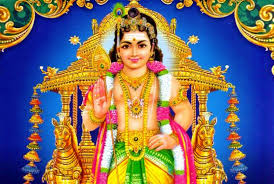|
COMPOSER Doraswami Kavirayar |
|
|||||||||||||
|
Doraswami Kavirayar, referred to here after as Kavi, was born on 15th August 1867, at Muthu Vinayagar Street, George Town Madras. His father was Samiappa Kavirayar, a poet of merit in the retinue of Pathai Sriramulu Chetty, a dubash of the East India Company. It is said that Samiappa Kavirayar did not have children for long and so he prayed often at the Karukkatha Amman Temple at Spurtank. One night the goddess appeared in his dream and promised him a son the next day. And so it proved. At the time of his birth, the patron Sriramulu Chetty declared that the prosperity of the times owed itself to the Dorai (the Englishman) and Swami (God). He was therefore named Doraswami. There is no record of Doraiswami having a mother or of Samiappa kavirayar having married. Indeed, we must attribute Kavi’s birth to a miracle.
Kavi was found to be completely disinclined towards learning and this was a sorrow to his father, who in true Carnatic tradition was fated to pass away when Kavi was merely five. Thereafter, Kavi was brought up by his father’s patron, who lavished his best attention on the boy but to no avail. One day, Sriramulu Chetty expressed his frustration by remarking “solla solla varamaattengude” (despite repeated telling, he wont learn). That was the turning point. Doraswami Kavi ran away to the Tiruporur Murugan temple where he spent the night. Lord Muruga appeared in his dream and wrote on his tongue. When he woke up, he found he had become a poet. Thereafter he had to only open his mouth and poetry poured forth. His first creation is said to be Solla Solla (now sung in Behag).
Eschewing material wealth, for he realised that to be remembered by posterity he had to be poor, Kavi spurned all offers of patronage. He became an itinerant poet, visiting temples. One day he arrived at Kozhipidichanpalayam to see a crowd. A man had fallen into a well and was declared dead. Immediately he sang innum parAmukham (now sung in bEgaDa) and the man bounced back to health.
Kavi’s talents came to the notice of the Zamindar of Eppodumtolvi who demanded that Kavi sing in his (Zamindar’s praise). This was sternly refused, whereupon the Zamindar ordered the Kavi’s arrest. In prison Kavi sang Harahara Sankara (now sung in Mukhari). That very night the Zamindar had severe stomach ache and realised his folly. He ordered the release of Kavi and honoured him with todas and shawls.
Kavi was particularly attached to Dandayudhapani, the deity of Palani and sang several songs in His praise. Kavi was also referred to as Kaliyuga Dandayudhapani as he wore only a loincloth and carried a staff. Kavi was tall, with a bright forehead that always sported the sacred ash. He had a broad chest and there was effulgence about him. It is not known if he had six pack abs.
Now that all the important details of his life have been covered, we need to document his end, which like that of most Carnatic composers, is inordinately well-recorded. In his last years Kavi came under the patronage of the Governor of Madras, ME Grant Duff. This was by way of a ball of butter to be left at his doorstep every morning. One day he was given a vision and sang kathirvaDivEla (now sung in Jayantashree). It is likely that he had a premonition of his passing thereafter and really looked forward to it. But then God delayed His arrival and exasperated with this, Kavi embarked on innum enna Ezhai mEl. It is said that during the singing of this song, God appeared on a peacock and danced before him and vanished at the end of every verse and reappeared only if he composed yet another. That is why this song has a slow pallavi and four fast-paced caraNams. At the end of it, there was a burst of light and Kavi shuffled off his mortal coil. From the heavens came the singing of a mangaLam (saravaNa), which was quickly noted down by the Governor of Madras, ME Grant Duff. On his return to England, the Governor named his estate Doraiswamipuram, which is now known as Dorsey.
There has of late been a persistent rumour that the place where Doraiswami Kavirayar shuffled off suffered a severe subsidence thereafter and necessitated the construction of a subway known as the Doraiswami Subway. But we vehemently state that there is no truth in this.
A week after his passing, Kavi appeared in a dream to Raja Sir Annamalai Chettiar. This was interpreted as a command that his songs be set to music. The task was entrusted to VS Gomathisankara Iyer who notated them. A contemporary historian however states that he has seen notated songs of Doraswami Kavi in the notebooks of Durguniammal, the hereditary Devadasi of Adigaprasangiamman temple. He is of the view that the first attempt at notation was by one Kosapettai Iramasami Nattuvanar.
|
||||||||||||||





